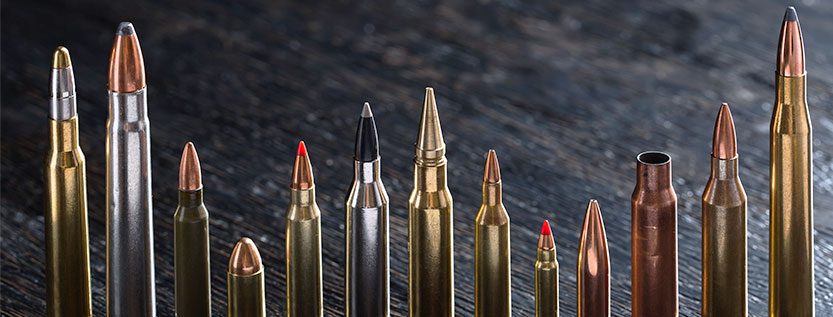How to Choose the Right Ammo
Introduction
Choosing the right ammunition for your firearm might feel daunting, given the variety available on the market. This article will provide you with a detailed guide on understanding gun ammunition basics, considering factors such as caliber, brand, purpose, and more. Our aim is to help you make an informed decision when purchasing your next batch of ammunition.
Gun Ammo Basics
What is Gun Ammo
Gun ammunition, or simply ‘ammo’, refers to the material fired, scattered, dropped, or detonated from any weapon. It comprises four parts: the casing, the primer, the propellant (or gunpowder), and the projectile.
Types of Gun Ammo
Understanding the different types of gun ammo is crucial in making an informed purchase.
Handgun Ammo
Handgun ammunition comes in a variety of types, the most common being the .22, .380 ACP, 9mm, .40 S&W, and .45 ACP. Each has specific uses and characteristics, which we will delve into later in this guide.
Rifle Ammo
Rifle ammunition is typically more powerful and faster than handgun ammo. It comes in numerous calibers, with .223 Remington, .308 Winchester, and .30-06 Springfield being some of the most popular.
Shotgun Ammo
Shotgun ammo, or shotgun shells, come in various sizes and types. They are designed to fire multiple small projectiles, though some types fire a single projectile.
Rimfire Ammo
Rimfire ammo is a type of ammunition where the firing pin of a gun strikes and crushes the base’s rim to ignite the primer. It’s mostly used in small-caliber weapons, like the .22 caliber rifles and pistols.
How is Gun Ammo Made
The production of gun ammo involves various processes. First, the brass casing is created, followed by insertion of the primer. The casing is then filled with a measured amount of propellant, and finally, the projectile is seated.
Gun Ammo Safety Tips
Always handle gun ammo with care. Store it in a cool, dry place, away from children. Ensure your weapon is in good condition and always use the correct caliber for your firearm.
Ammo By Caliber
The caliber of ammo refers to the internal diameter of a firearm’s barrel or the diameter of the bullet it fires. Here are some popular calibers and their general uses:
.22LR Ammo
The .22 Long Rifle (.22LR) is a popular caliber for small game hunting and casual plinking due to its minimal recoil and noise.
9mm Ammo
9mm ammo is favored by many for self-defense and law enforcement. It’s known for its moderate recoil and high capacity.
.45 ACP Ammo
The .45 ACP (Automatic Colt Pistol) caliber is often chosen for self-defense, thanks to its stopping power.
.380 ACP Ammo
The .380 ACP (Automatic Colt Pistol) is popular for concealed carry pistols due to the compact size of the firearms that chamber it.
.223/5.56 Ammo
The .223/5.56 ammo is common in AR-15 rifles and is suited for varmint hunting and target shooting.
More Calibers…
There are numerous other calibers, each with unique characteristics and uses. Always choose the caliber suitable for your specific needs and compatible with your firearm.
Ammo By Brand
There are many reputable ammo brands, each with its unique qualities. Some popular ones include:
Federal Ammo
Federal is renowned for its reliability and consistency, offering a wide range of ammo for different purposes.
Winchester Ammo
Winchester is a historic brand, known for its quality ammo for hunting, shooting, and self-defense.
Remington Ammo
Remington, another long-established brand, offers a diverse selection of ammo, from personal defense rounds to sporting and hunting ammunition.
Hornady Ammo
Hornady is popular among precision shooters for its exceptional accuracy and consistency.
CCI Ammo
CCI is well known for its high-quality rimfire ammunition, often chosen by hunters and sport shooters.
More Brands…
There are numerous other brands, each offering unique attributes. Do your research and choose the one that best fits your needs and preferences.
Ammo For Purposes
Different activities require different types of ammunition. Understanding this is vital in making the right choice.
Home Defense Ammo
For home defense, choose ammo that offers a good balance between stopping power and over-penetration risk, such as hollow-point rounds in suitable calibers like 9mm or .45 ACP.
Hunting Ammo
For hunting, the choice depends on the game you are pursuing. For example, .223/5.56 ammo can be suitable for varmint hunting, while larger calibers like .308 Winchester might be required for big game.
Target Practice Ammo
For target practice, go for affordable, reliable rounds. Full metal jacket (FMJ) bullets are common for this purpose.
Competition Ammo
For competition, precision and consistency are key. Brands like Hornady are often preferred for their match-grade ammunition.
Specialty Ammo
Specialty ammo includes frangible rounds, tracer rounds, and more. They are designed for specific uses and often used by law enforcement or military.
Guides & Tips
Buying Guides
Buying ammo requires understanding your specific needs and the attributes of different ammo types. Consider factors such as the purpose, firearm compatibility, brand reputation, and price.
Shooting Techniques
Mastering different shooting techniques will help you utilize your ammo more effectively. This involves aspects like stance, grip, sight alignment, and trigger control.
Ammo Storage Tips
Store ammo in a cool, dry, and secure place to maintain its quality and safety. Consider using a dedicated ammo can or safe.
Gun Cleaning and Maintenance
Proper gun maintenance ensures reliable ammo firing and extends the firearm’s lifespan. Regular cleaning after use, correct storage, and periodic professional servicing are recommended.
FAQs
- What caliber of ammo should I choose?
The caliber of ammo you should choose depends on your firearm and the purpose of the ammo, such as hunting, self-defense, or target shooting. - Which ammo brand is the most reliable?
Many brands are renowned for their reliability, including Federal, Winchester, Remington, Hornady, and CCI. - What is the best ammo for home defense?
For home defense, hollow-point rounds in suitable calibers like 9mm or .45 ACP are often recommended. - Can I use hunting ammo for target practice?
While you can use hunting ammo for target practice, it is usually more expensive than dedicated target ammo. - How should I store my ammo?
Ammo should be stored in a cool, dry, and secure place, away from children and pets. - Why is there a shortage of ammo?
Ammo shortages can occur due to increased demand, production issues, or legislative changes. - Is expensive ammo worth it?
Expensive ammo often offers superior performance or specialty features. Whether it’s worth it depends on your specific needs. - Can old ammo be dangerous?
Old ammo can pose a risk if improperly stored or damaged. Always check the condition of your ammo before use. - What’s the difference between rimfire and centerfire ammo?
The difference lies in - the location of the primer. In rimfire ammo, the primer is in the rim of the casing. In centerfire ammo, the primer is in the center of the casing’s base.
- What is full metal jacket (FMJ) ammo?
FMJ ammo is a type of ammunition where the soft lead core of the bullet is encased in a shell of harder metal. It’s commonly used for target practice. - What is hollow point ammo?
Hollow point ammo is designed to expand upon impact, maximizing damage to the target. It’s often used for self-defense and hunting. - What does grain mean in ammo?
The grain of ammo refers to the weight of the bullet, not the amount of gunpowder. One grain is equal to 1/7000th of a pound. - What does ACP mean in ammo?
ACP stands for Automatic Colt Pistol, indicating the ammo was originally designed for Colt’s automatic pistols. - What does Magnum mean in ammo?
Magnum ammo is more powerful than similar, non-magnum rounds. It typically features a larger amount of gunpowder. - What is match-grade ammo?
Match-grade ammo is high-quality ammunition designed for precise shooting in competitive settings. - What is frangible ammo?
Frangible ammo is designed to break apart upon impact, reducing the risk of over-penetration. - Can I mix ammo in my magazine?
It’s generally not recommended to mix ammo types in your magazine due to variations in performance and ballistic characteristics. - What is +P ammo?
+P ammo is overpressure ammunition. It has a higher internal pressure, resulting in a higher muzzle velocity. - Why is steel-cased ammo cheaper?
Steel-cased ammo is typically cheaper than brass-cased ammo because steel is less expensive and easier to manufacture. - Can steel-cased ammo damage my gun?
While steel-cased ammo is generally harder on a firearm than brass-cased ammo, modern firearms are typically robust enough to handle it.
Choosing the right ammo is crucial for the effectiveness and safety of your shooting activities. From understanding ammo basics to recognizing the importance of caliber, brand, and purpose, this guide offers a comprehensive view of the factors to consider when buying ammo. The more you know, the better choices you’ll make, ensuring you get the most from your shooting experience, whether that’s at the range, in the field, or in a self-defense scenario. For more information or to purchase ammo in Rhode Island from a local gun store call or come by Pocasset Arms.



